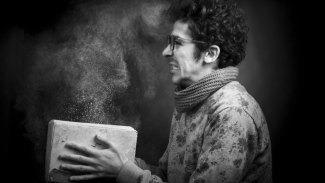Hiccups: Everything You Need to Know
- Times of India
Jakarta – Most of us have experienced hiccups from time to time. Although sometimes annoying, this condition generally resolves on its own within a relatively short time.
However, occasionally stubborn hiccups can last for several minutes or even up to an hour, and even the longest recorded hiccup episode lasted 68 years. When you're working or in social situations, this can certainly be disruptive and bothersome.
To better understand the causes of hiccups and how to get rid of them, two experts share their knowledge.
What causes hiccups?
Hiccups are involuntary contractions of the diaphragm muscle and the muscles between the ribs that occur suddenly to expand the lungs for breathing, followed immediately by the closure of the glottis.
"It's the closure of the muscle that closes the airway after swallowing that causes the 'hic' sound when we hiccup," said Mark Loafman, M.D., a board-certified family physician at Cook County Health in Chicago, Illinois.
Cegukan.
"Most hiccups only last a short while and don't need to be worried about. Longer durations are associated with a variety of conditions, ranging from mild to serious, although sometimes we never find the cause of persistent hiccups," Loafman added.
He also remarked: "Some people do have a predisposition more than others. Routine hiccups most commonly occur in older and taller men,"
"There are some theories as to why this happens, possibly body type affecting various neuromuscular tissues involved, but no one knows for sure," Loafman explained.
Tips to get rid of hiccups
While there are home remedies for hiccups, there's a range of evidence on what truly works, said Natasha Bhuyan, M.D., a family physician at One Medical in Phoenix, Arizona.
"Hiccups are essentially a reflex, so many treatments try to disrupt the signals causing that reflex," she said.
"That's why many treatments involve strange ways of eating and drinking," Bhuyan added.
Although there haven't been clinical trials on home remedies, Loafman noted that some patients have found benefit from some of these methods.
One strategy is to hold your breath to your tolerance for five or even 10 seconds.
Another idea is to try the Valsalva maneuver, typically done by closing the mouth and pinching the nose while exhaling, according to the National Institutes of Health.
Sipping or gargling with cold water, biting into a lemon, swallowing a teaspoon of dry sugar, or pulling your tongue are other home remedies Loafman suggested.
"Remember that hiccups usually resolve on their own and will stop no matter what you do, so any treatment will ultimately succeed because the hiccups will stop on their own," the doctor said.
Regarding old tactics to scare someone or startle someone to stop hiccups, Loafman said that's just a myth and might not always work.
"But hiccups almost always stop on their own, so startling someone sometimes appears effective," he stated.
When to seek medical help?
It's advisable to seek medical help if hiccups last for hours, recur frequently, or disrupt basic functions, said Loafman.
Although hiccups usually last only briefly and are generally harmless, persistent hiccups are associated with some chronic and sometimes serious health conditions.
This can include central nervous system disorders, diabetes, kidney disease, and esophageal issues, according to the Mayo Clinic.

































